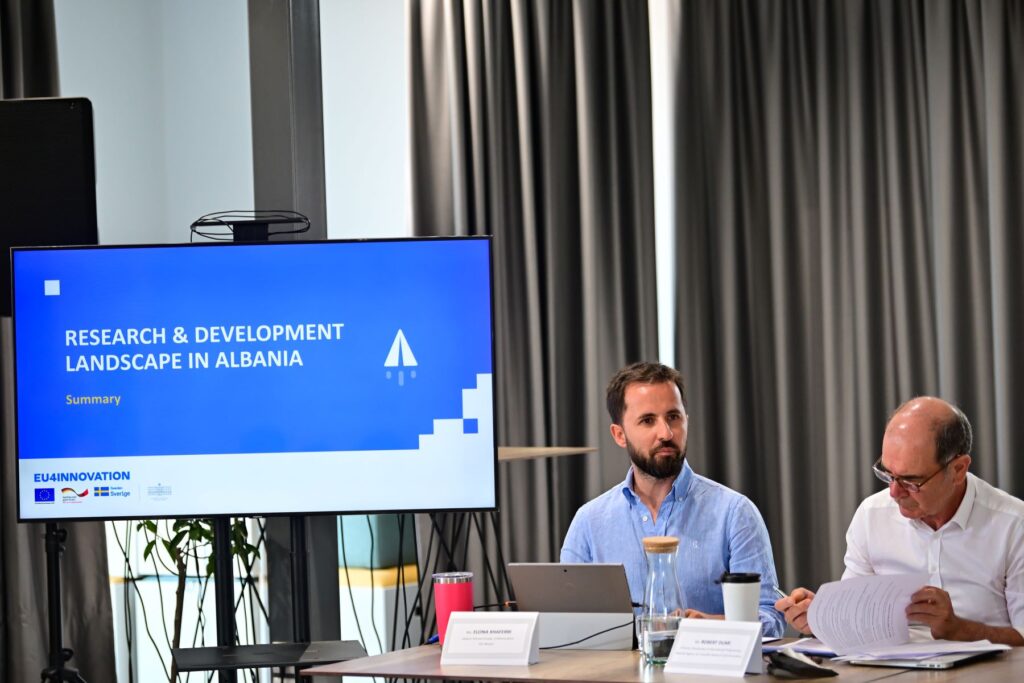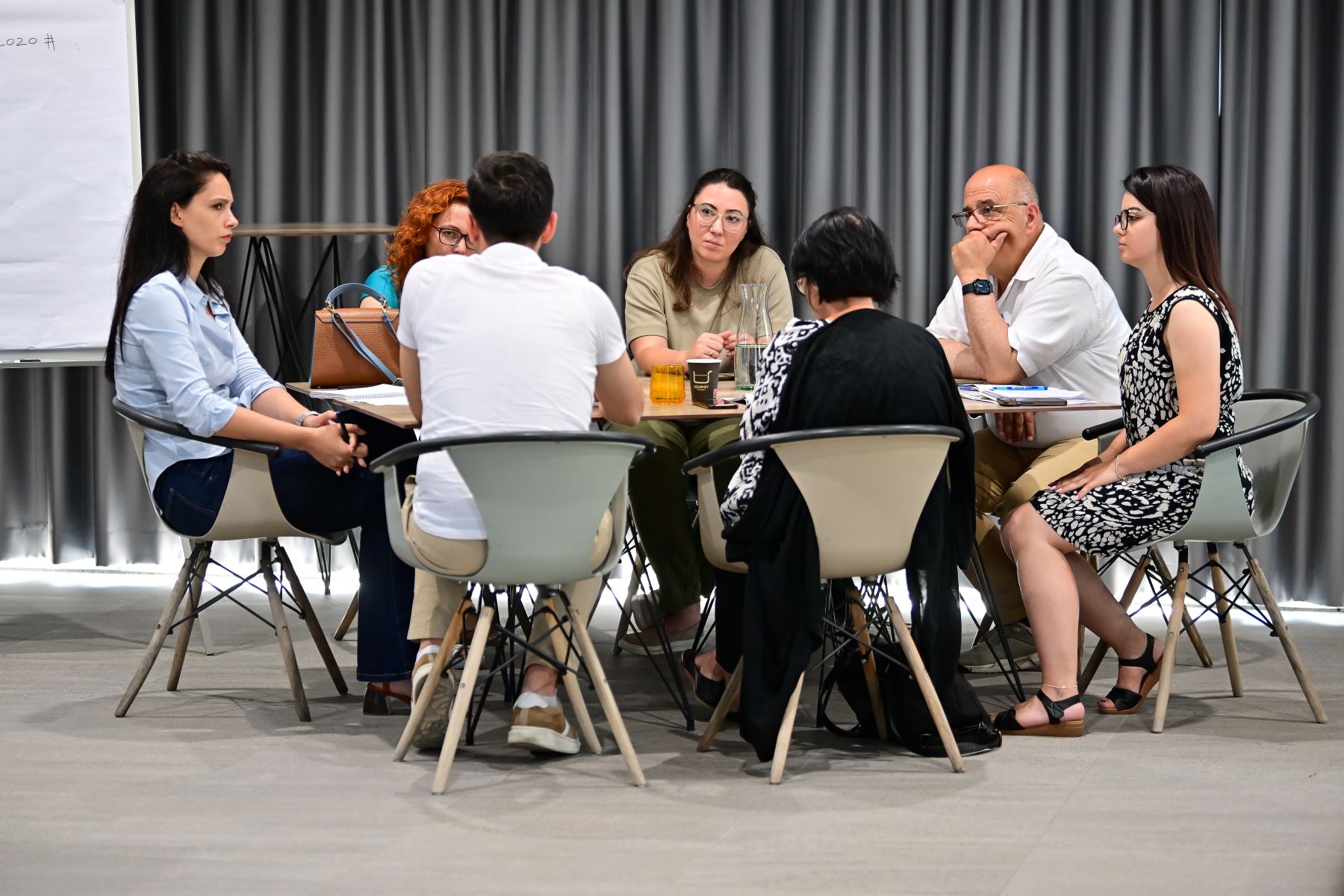On 24 June 2024, the EU4Innovation project organised a workshop on Horizon Europe with stakeholders from higher education institutions, not-for-profit, SMEs and the newly selected National Contact Points (NCPs) under the Horizon Europe Programme. The event aimed to develop a common understanding of participation in Horizon Europe by sharing perspectives and best practices.
The EU4Innovation (EU4I) project is a multi-donor Action jointly co-financed by the European Union (EU), the Federal Ministry of Economic Cooperation and Development (BMZ) and SIDA and implemented by GIZ and SIDA from January 2023 to June 2026.
The workshop began with opening remarks from Michael Oos, Project Manager at EU4Innovation, Ana Kapaj, Deputy Minister of Education and Sports, and Mirela Muça, General Director of the National Agency for Scientific Research and Innovation (NASRI). Following the opening remarks, Genci Alimehmeti presented the findings of a study commissioned by the GIZ on Albania’s research and development landscape, highlighting perspectives from higher education institutions (HEIs).
A key session featured Robert Dumi, Director at NASRI, and Elona Xhaferri, Advisor for Horizon Europe at EU4Innovation. This session provided detailed insights into the programme’s opportunities and requirements.
During the break-out session, the participants discussed the institutional challenges encountered and the need for successful Horizon Europe applications, including the current involvement of Albanian National Contact Points.
The workshop concluded with concrete recommendations on the support needed by the EU4Innovaton project towards upcoming Horizon Europe calls and a networking lunch, allowing participants to connect and discuss future joint initiatives.
Some of the recommendations of the focus groups are the following:
1. General recommendations
- Institutions should provide more targeted training in project writing and management, potentially with assistance from the National Agency for Scientific Research and Innovation (NASRI) (even beyond this project).
- Increase awareness of programmes like COST, particularly outside major urban centers like Tirana, through targeted workshops and meetings to encourage broader participation in HE projects.
2. In terms of experience, best practices, and needs in project writing and overall management
- Institutions have, until now, mostly considered assigning lead partners from EU countries more consistently to increase the success rates of Horizon Europe project applications. In order for them to have more chances to apply as leaders/coordinators, they need technical assistance to review their proposals.
- Adopt best practices from successful Project Offices within HEIs, which use a well-structured approach to project application and management inside their institutions, ensuring that the project writers are also the implementers to protect individual contributions.
- Improve the connection between Project Offices and academic departments to leverage appropriate expertise for project engagements. Increase motivation among academic staff and young researchers to be engaged.
3. In terms of partnerships, best practices, and needs
- Encourage the use of EU Funding and Tender portal to find proactive international partners and distribute work more evenly among consortium members.
- Establish a national platform to facilitate more accessible access to information on available human resources, expertise, and potential partners within Albania, enhancing the efficiency of partner searches and collaboration.
- Leverage the Albanian diaspora to establish robust partnerships, as they are familiar with both local constraints and the capabilities of international HEIs.
4. In terms of challenges and constraints for participation in Horizon Europe Projects
- Advocate for changes in national higher education laws to allow departments to open specific administrative units (NUIS) to manage project funds autonomously.
- Push and advocate for policy reforms that would allow public institutions to utilize project funds more flexibly, addressing issues such as extra working hours and VAT compensation for project-related expenses.
- Encourage the Ministry of Finance and other relevant bodies to adjust financial practices that impede project implementation, such as the cumbersome process of accessing and utilizing awarded funds, as well as tax incentives for businesses taking part in HE projects or other EU-funded projects.
5. In terms of the role of National Contact Points (NCP)
- Transform the role of NCPs to provide more than generic information, tailoring training and support to specific calls and institutional needs.
- Establish a platform managed by NCPs to coordinate and share targeted information between public institutions, industry, businesses, and NGOs, targeting specific calls and fostering a collaborative environment.
Source of information: EU4Innovation



